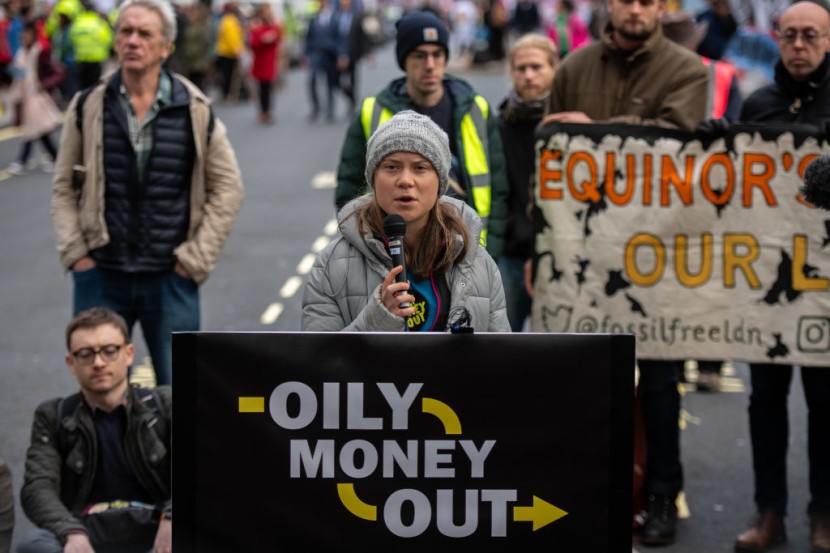Climate activist Greta Thunberg was acquitted on Friday of a charge stemming from a protest at a major oil and gas industry conference in London last year.

The charge was that she refused an order from a police officer to leave a protest that blocked the entrance to the conference.
The gallery in attendance erupted in celebration, reports the Associated Press, as Judge John Law told her and four co-defendants to stand before telling him that they were cleared of the criminal charge of breaching the Public Order Act on the grounds that there were "significant deficiencies in the evidence" that was presented against them.
The judge also stated that the police could have been less restrictive in their methods and didn't properly define where the protesters should move and the dispersal order that was given was "so unclear that it was unlawful."
So, those who did not comply are not guilty of a crime. Judge Law further ruled that grant defense lawyer Raj Chada's request that the government pay legal fees for the defendants, as well as Thunberg's travel expenses.
The Protest
Greta Thunberg inspired an environmental youth movement across the globe when she demanded stronger efforts to fight climate change. She was charged in Westminster Magistrates' Court with violating an act that was imposed so that police could control public assemblies. She had faced a fine of up to 2,500 pounds if she had been convicted.
The 21-year-old Thunberg was among 34 protesters arrested on Oct. 17 after preventing access to a hotel during the Energy Intelligence Forum. Environmentalists accuse the oil and gas industry of slowing down the global energy transition to renewables on purpose in order to prolong high-profit margins.
"We must remember who the real enemy is," Thunberg said Thursday outside court after the first day of trial. "What are we defending? Who are our laws meant to protect?"
The Associated Press reports Metropolitan Police Superintendent Matthew Cox said he had worked with protesters for about five hours before he issued an order for demonstrators to move to an adjacent street.
"It seemed like a very deliberate attempt ... to prevent access to the hotel for most delegates and the guests," Cox testified. "People were really restricted from having access to the hotel."








